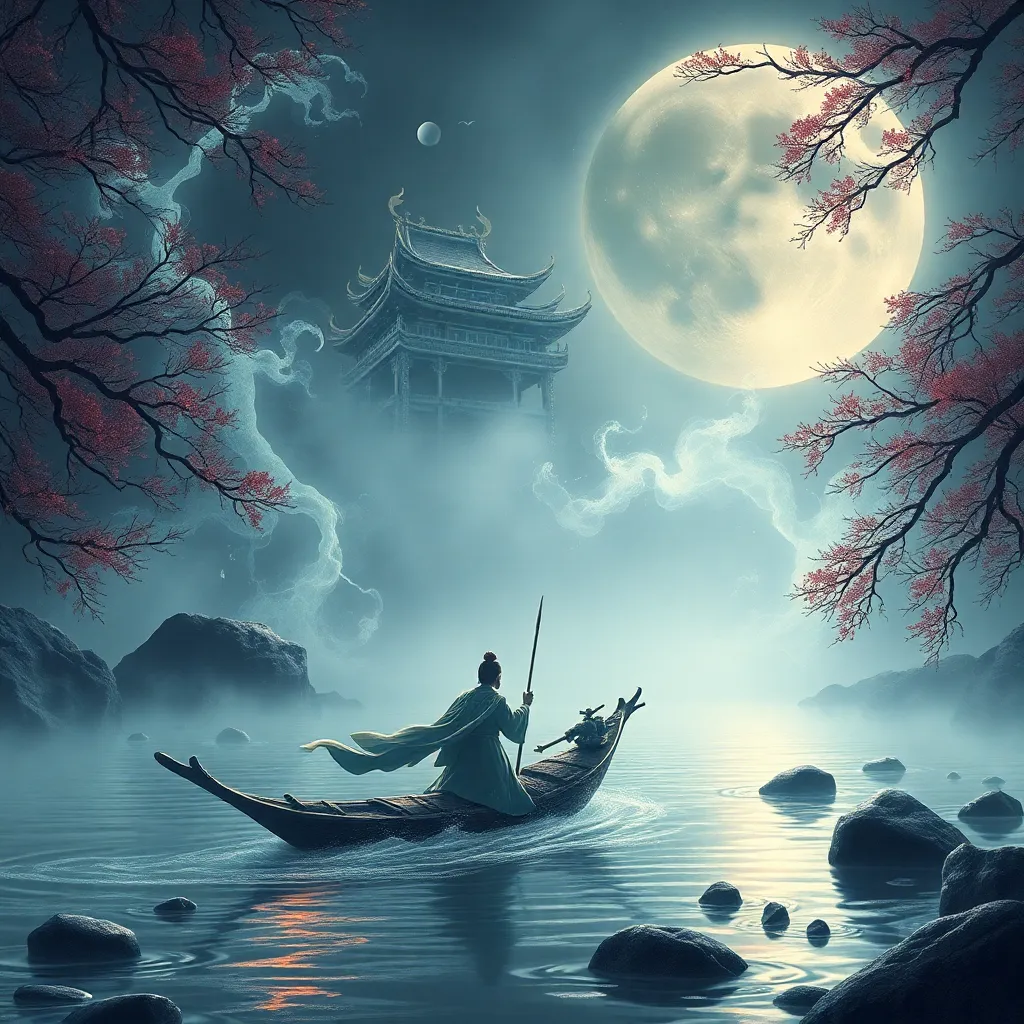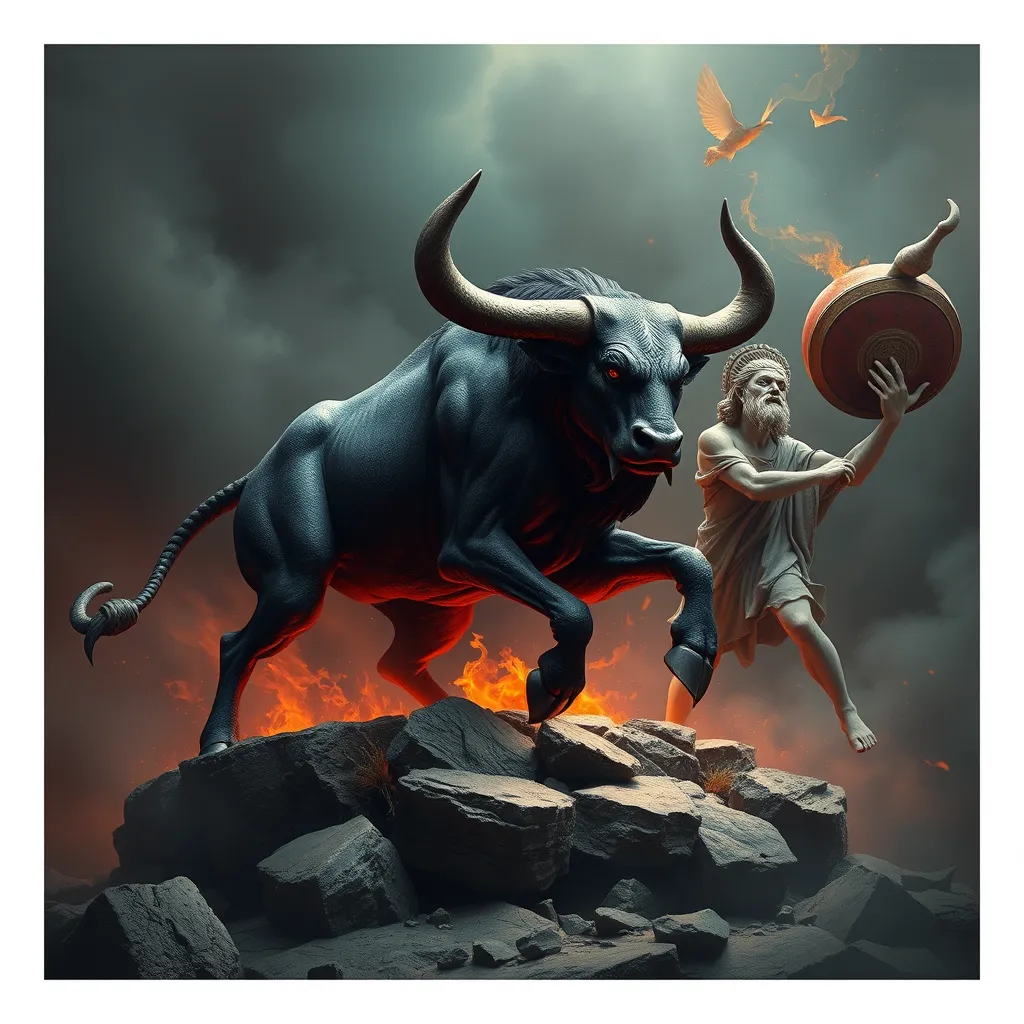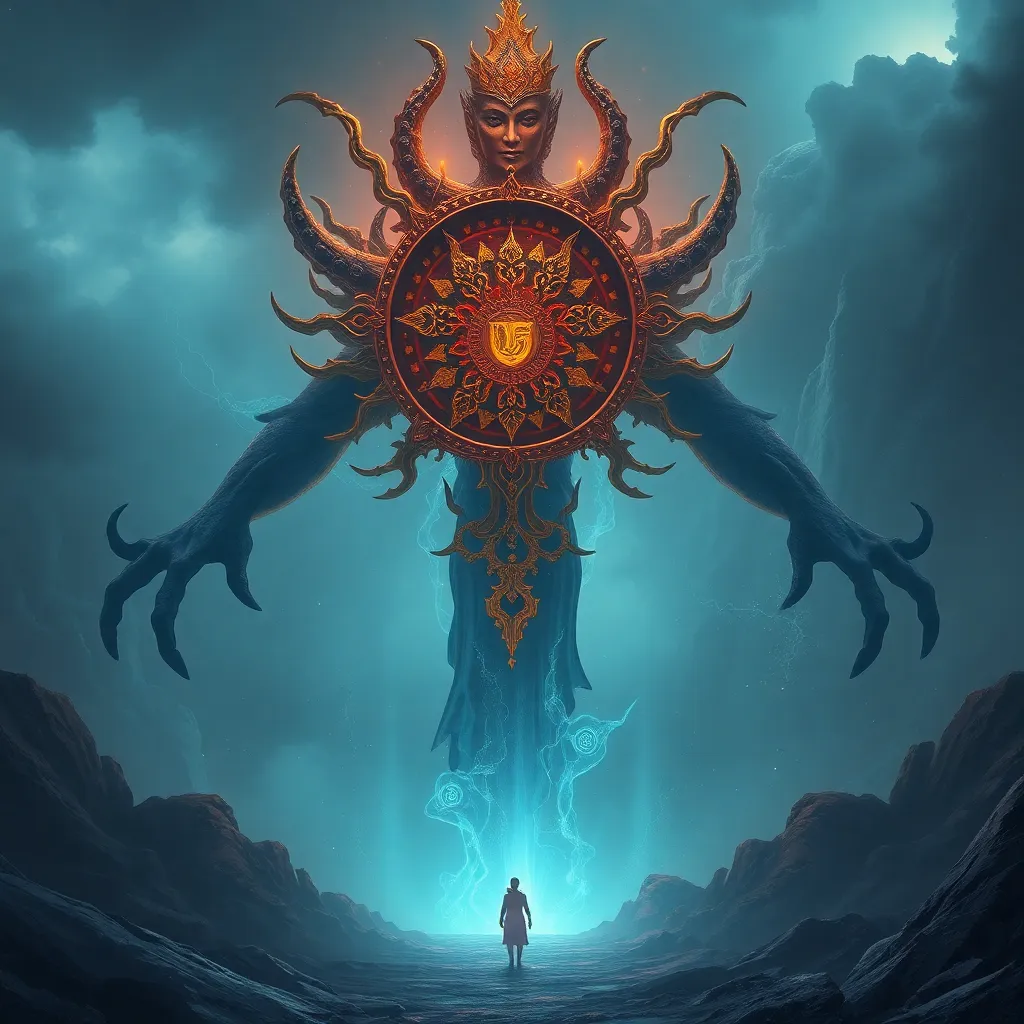The Spirit of the River: Delving into the Legends of the Chinese River Spirit, He Bo
I. Introduction
In the rich tapestry of Chinese mythology, He Bo stands out as a significant figure, representing the spirit of rivers and their vital role in the lives of people. Revered as a deity of the Yellow River, He Bo encapsulates the dual nature of water, serving both as a life-giving force and a potential harbinger of destruction. His importance extends beyond mere folklore; He Bo embodies the cultural heritage and spiritual beliefs that shape the Chinese worldview.
River spirits like He Bo hold a cherished place in Chinese folklore, often symbolizing the interconnectedness of nature and humanity. These spirits are not only revered for their power but also respected for their unpredictability. This article aims to explore the historical context, symbolism, mythical tales, modern representations, regional variations, and environmental relevance of He Bo, shedding light on the enduring legacy of this river spirit.
II. Historical Context of He Bo
The origins of He Bo can be traced back to ancient Chinese texts, where he is often depicted as a guardian of the Yellow River. Historical references to He Bo appear in texts such as the “Shan Hai Jing” (Classic of Mountains and Seas), which details various deities and mythical creatures. Over the centuries, He Bo’s characterization has evolved, influenced by the sociopolitical landscapes of different dynasties.
Throughout various dynastic eras, the legend of He Bo has adapted, reflecting changes in cultural attitudes toward nature and spirituality. For instance, during the Tang and Song dynasties, He Bo was increasingly associated with agricultural prosperity, as the health of rivers directly impacted farming communities.
When compared to other river deities in global mythology, such as Poseidon in Greek mythology or Ganga in Hinduism, He Bo presents a unique perspective. While many river gods are often depicted as solely benevolent or malevolent, He Bo embodies a more complex character, showcasing the duality of rivers themselves.
III. Symbolism and Attributes of He Bo
He Bo is often represented with distinct physical attributes that signify his power over water. Common iconography includes:
- Serpent-like Features: He Bo is frequently depicted with serpent-like characteristics, symbolizing the fluidity and unpredictability of water.
- Flowing Garments: His garments often appear to flow like water, emphasizing his connection to the river.
- Water-Related Objects: He is sometimes shown holding objects like fish or water vessels, representing abundance and fertility.
In Chinese culture, rivers symbolize various concepts, including life, sustenance, and change. Water is seen as a source of nourishment, but it also has the potential to flood and destroy. This duality is central to He Bo’s identity as both a nurturing and destructive force.
IV. Mythical Tales Involving He Bo
Numerous legends feature He Bo, each illustrating different aspects of his character and the relationship between humans and nature. One famous tale tells of how He Bo saved a village from a devastating flood by providing guidance on proper irrigation methods, thus emphasizing his role as a protector and teacher.
Key characters often associated with He Bo include:
- Emperor Yu: A legendary ruler who learned from He Bo to control floods and manage water resources effectively.
- Feng Bo: Another river spirit who occasionally collaborates or competes with He Bo, representing the interplay between different water deities.
These stories often carry moral lessons, focusing on themes of respect for nature, the importance of balance, and the consequences of human actions on the environment.
V. He Bo in Modern Culture
In contemporary art and literature, He Bo has been reinterpreted in various forms. Artists often draw inspiration from his image to explore themes of nature and spirituality. Literature, too, reflects He Bo’s enduring legacy, with authors incorporating his character into modern narratives to highlight environmental issues.
He Bo’s influence extends to festivals and rituals in China, where communities honor river spirits through celebrations that emphasize water conservation and respect for nature. Popular media, including films and video games, also feature He Bo, often portraying him as a wise and powerful entity guiding characters on their journeys.
VI. Regional Variations of He Bo
He Bo is not a monolithic figure; different provinces in China interpret him in unique ways based on local beliefs and customs. For instance, in some regions, He Bo is revered as a local guardian spirit, while in others, he may be seen as a more generalized river deity.
Local legends often expand the He Bo mythos, incorporating regional flora and fauna into stories about the river spirit. Geography plays a crucial role in shaping the perception of river spirits; for example, communities living near mountainous rivers may view He Bo as a more aggressive protector compared to those near calmer waters.
VII. The Role of He Bo in Environmental Awareness
As a symbol of ecological balance, He Bo’s lore embodies the importance of water conservation and environmental stewardship. Modern movements inspired by the legend of He Bo emphasize the need for sustainable practices and respect for natural resources.
In recent years, initiatives focusing on river conservation have drawn parallels to He Bo’s teachings, promoting awareness about the delicate balance of ecosystems. This connection between mythology and environmental responsibility serves to reinforce the idea that respecting nature is integral to cultural identity.
VIII. Conclusion
He Bo, the spirit of the river, embodies a complex tapestry of cultural beliefs, environmental awareness, and moral teachings. His enduring legacy reminds us of the vital relationship between humanity and nature. As we reflect on the stories of river spirits like He Bo, it becomes clear that folklore plays an essential role in shaping cultural identity and values.
In a world where environmental issues are increasingly pressing, the tales of He Bo encourage us to appreciate and preserve the natural world, ensuring that the spirit of the river continues to inspire future generations.



